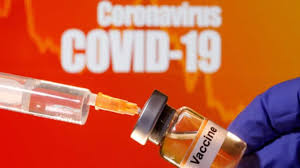Source: analyticsinsight.net
Contribution of AI to a Coronavirus vaccine
Biomedical research of vaccines against COVID-19 was already being tested in humans in March. Three months after the initial outbreak was identified in China, many of those owed their rapid start to the power of Artificial intelligence (AI).
The feat is a promising and remarkable step in more than 200 years of immunization history. The experience may revolutionize the way vaccines are developed, potentially saving countless lives in future epidemics.
According to the World Health Organization (WHO), 34 vaccine candidates were being tested in humans as of early September. Another 145 candidates were picked up to test them in animals or in the lab, says WHO keeping a worldwide running list. Considering no one had heard of the novel coronavirus less than a year ago, these numbers are surprising. Novel coronavirus now recognized as SARS-CoV-2 that causes respiratory disease COVID-19. It typically takes several years or even decades to create a vaccine. The mumps vaccine’s highest speed record went from a collected sample to a marketed product within almost four years.
Research is speeding up with time. Our society and economy likely will not return to normal until a highly effective vaccine has been administered to a substantial amount of the planet’s population. The search for a vaccine has now expanded, collaborating with thousands of researchers at hundreds of laboratories worldwide and spending billions of dollars.
Human lives and the global vaccine market are at stake, risking approximately US $35billion even before COVID-19, and governments, philanthropies, and apothecary companies have been spending accordingly. In July, the U.S. government agreed to pay nearly $2 billion to pharmaceutical giants German’s BioNTech and Pfizer for 100 million doses of a vaccine when and if it comes to the market. Other major vaccine initiatives across the world are also getting funded in the 10 figures.
Machine learning algorithms and computational analyses have played a pivotal role in the vaccine venture. These tools help researchers understand the structure of the virus and speculate which of its components will provoke an immune response, an essential step in designing vaccines. These can also help scientists choose the potential vaccines’ elements, track the virus’s genetic mutations, and make sense of experimental data.
Suchi Saria, a professor at the John Hopkins Whiting School of Engineering and director of the university’s machine learning and health care lab, says, “AI is a powerful catalyst.” She explains, “AI enables scientists “to draw insights by combining data from multiple experimental and real-world sources.” She adds, such datasets are mostly messy and challenging as the researchers historically haven’t attempted this kind of analysis.
AI has contributed to the quest for a COVID vaccine than it has ever before. It is a tiny part of a broader suite of computational tools that are revolutionizing vaccine R&D. A few people have already started thinking about the next pandemic, and on the other hand, scientists have also started to figure out how these tools will do a bit more the next time.
In the early months of the pandemic, Russ Altman and Binbin Chen led a team of computer scientists at the Standford Institute for Human-Centred Artificial Intelligence (HAI) used machine learning to see if vaccine candidates, tested in animals can provoke an excellent immune response. Using the neural-network algorithms NetMHCpan-4.0 and MARIA and DiscoTope, the scientists came up with a list of targets or epitopes on the coronavirus that is expected to provoke an immune response. These epitopes are components of the virus, which B cells and T cells will likely identify.
